An honest review from a health coach
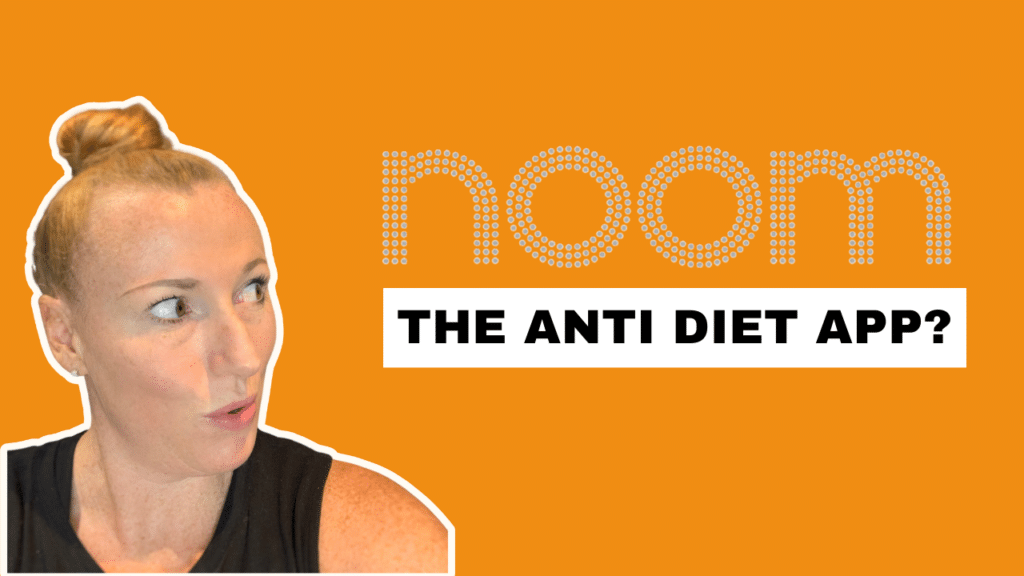
In this article I’ll be sharing my open and honest opinion and a full Noom diet reviews as a health coach. Would be recommending it as a tool for living a healthy lifestyle? This is my opinion and review of the Noom diet plan.
You can read on for the written format, or if you prefer to listen, then watch the video below.
As life seems to be returning to some levels of normality post-lockdowns I’m seeing hoards of people wanting to lose the quarantine 15. As the masses go in search of the ‘best’ diet I wanted to review some of the popular ones and help make your diet selection that bit easier.
One of the top ones that have been getting a serious amount of flack of late is Noom.
The Noom app boasts the tagline stop dieting and get lifelong results with the goal of helping you to achieve sustainable weight loss. The supposed anti-diet app, but is it really any different and what are the problems associated with it?
 Dr Joshua Wolrich Facebook page
Dr Joshua Wolrich Facebook page
Dr Wolrich who is an NHS Dr and registered nutritionist states that we should be rejecting all of diet culture. Something that I will touch on at the end of this article as I don’t believe that all dieting is bad, but for now let’s look for some more bashing.
Kelly Hooover Greenway in her article in Cosmopolitan states that “Noom Lured Me in With Its Wellness Hype — and Wrecked My Relationship With Food”
So is this actually an anti-diet or just another diet trap and is it as bad as people are making out and another route to an eating disorder?
To find out and give my honest opinion as a health coach I signed up for the app via the noom website and this is what I found. I am in no way affiliated with Noom, this is just my open and honest opinion of the app to help you decide if it’s the right path for you on your own health journey.
Getting Started
During the signup phase, you download from the app store, put in your email address and other details and you are ready to get started. The first thing you are guided through a series of questions, all of which were making the right noises. Like:
Learn to eat mindfully, psychology is the key to lasting lifestyle changes
Noom creates long-term results through habit and behaviour change, not restrictive dieting
It then goes on to ask questions about your existing lifestyle and also if you have any history with any disordered eating. All good signs that potentially their algorithm is designed to give you prescriptive advice depending on those answers and support an individualised approach to the noom weight loss program.
Then came the first red flag.
The system asked what the ideal weight I wanted to reach was, BUT it also gave me the suggested weight range of 46–60kg.
In my head who works in stone and pounds, that’s around 7.2 stone or 101lb for you Americans— 9.4stone or 133lb.
Seriously!
I don’t think I have been within that weight range since I was in my late teens. It was way too low a suggestion for what, I know what is ideal for my body. For someone who is not as in tune with their body, this could potentially send the message that ‘you are overweight and need to take drastic action’. I really don’t think that this recommendation was a good thing.
This can be damaging to anyone’s self-esteem or self-worth and so it’s so essential you create a greater self-awareness of what is actually a healthy and good goal for you and your body.
For the sake of this experiment, I decided to go to the top end range of their suggestion of 60kg but in reality, my target is more like 63kg
During the next phase of questions, they then come in once again asking all of the right kinds of questions, such as:
What feelings are you hoping to achieve through Noom? Happiness, peace, revitalised, gratitude, empowerment.
I’m hoping that Noom will help me increase my….. self-confidence, self-worth, self-awareness, self-acceptance, self-care (***FYI red flag alert, no diet or body size can increase your self-worth, that comes from within you and you are already worthy just as you are)
When I’m at a happy weight I’d love to…… eat more mindfully, enjoy all of the foods guilt-free, feel empowered to make good choices, think less about food overall, worry less about my body overall.
Again I see these as all positive signals (apart from the self-worth piece) that they are helping the client to assess on a deeper level why improving health, fitness and being at a healthy weight range is important to them. This is positive psychology-based approach that helps a person to go deeper with their reasons WHY and empowers them to follow the plan. I think that this is a super good thing, the right intention but would it transform in the execution of the program and persons individual weight loss journey?
Assessment Results
Based on my answers the app tells me that I have set a good goal, I already have some healthy habits and eat enough meals per day and that I will reach my 60kg goal by the 9th of July which was about 22 weeks out as I started this on the 31st January. This I would consider a nice sustainable pace to lose weight at. This was roughly a pound a week.
Then after asking some additional questions about my physical limitations and ability to workout more they then suggest that I could reach my goal by 13th June, which is a bit more of a push but still within the 2lb a week range. But then after asking even more questions and also the rate at which I would prefer to lose weight (to which I selected moderate) they push the date back even closer.
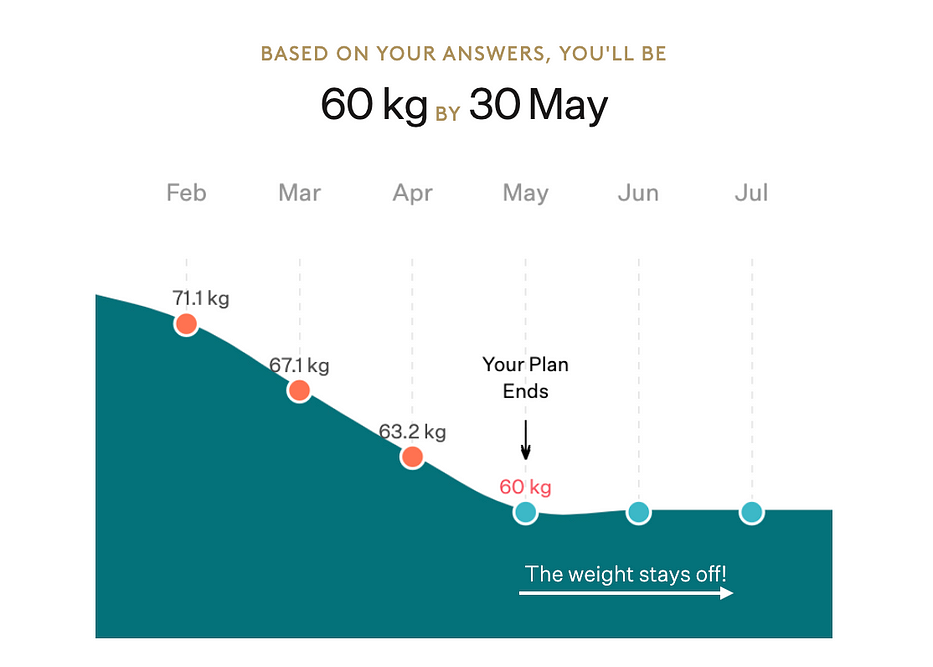 Screen Shot From Noom Sign Up Process
Screen Shot From Noom Sign Up Process
Is that a step too far?? I wasn’t sure about this but it does go against their initial statement of ‘no restrictive dieting’. It was incredibly motivating to think that I could achieve my goal in just a few weeks. But the health coach in me knows that it’s going to be pretty hard to sustain that long-term weight loss and is very much against their anti-diet messaging.
Getting Into the Actual Diet
At this point, let’s call a carrot a carrot and I feel where the app is getting so much flack for its anti-diet marketing. It is indeed a diet! It’s counting and tracking calories and labelling food groups as red foods, yellow foods and green foods and weighing yourself daily. That’s the basis of a diet.
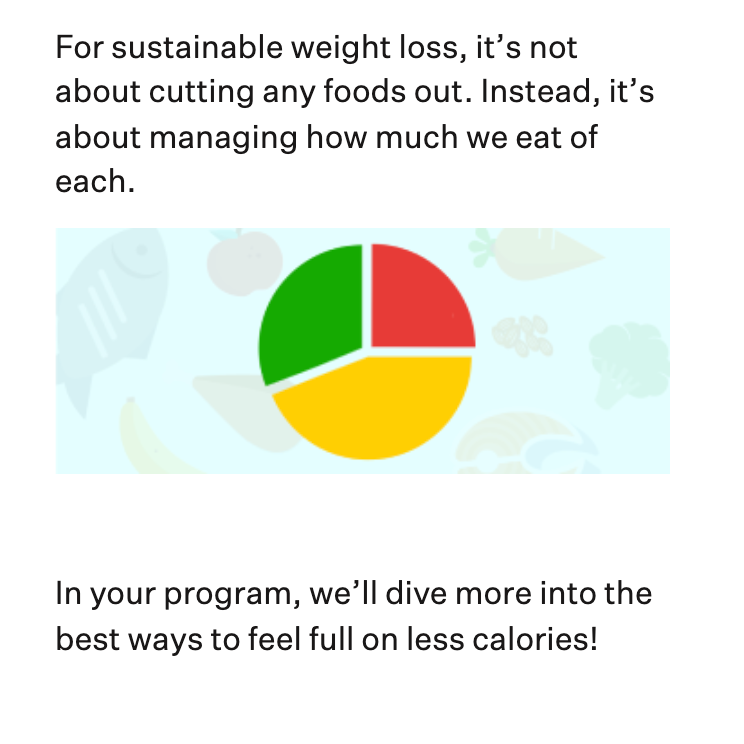 Screen Shot Of Noom Sign Up Process
Screen Shot Of Noom Sign Up Process
Now as a health coach I don’t think that these tools are bad, because I don’t believe that dieting is bad for everyone. It can help someone who has little knowledge about how to effectively modify your diet to lose weight. Like volume density over calorie density of foods, though they do seem to have some weird obsession with grapes as their prime example of a volume-dense food items.
However, classing foods as green yellow and red automatically puts them in categories of your mind as green being good and red being bad.
Though they do go to explain through their articles and daily lessons, (which are actually voice articles which I enjoyed as it meant I could listen to these when on the go or out walking the dogs) that red doesn’t mean bad, it’s just foods to not go overboard on.
This is a fair point and a sound recommendation, we do need to be mindful of our intake of some foods, especially if we are going to be in the calorie deficit that is needed to lose weight. But, if we are talking about psychology here (which they say that they base the app on), we have all been conditioned to know that red means bad so why not use more neutral colours if you are going to colour code food groups and not call them ‘bad’ foods?
The Calories
I was given a calorie intake target of 1,320 which I know for me and my body is really low. But if I tracked my steps and input my workouts it could go up as far as 1,700 depending on how much activity I had done that day.
Again I don’t feel this is ‘bad’ guidance. If I move more I can eat more, moving less eat a little less your calorie intake will depend on activity levels. Essentially it is just that though, it’s a guide and should be taken as such.
The Result
After following the daily tracking and weighing for the duration of the 2-week trial I had lost 5lb and actually felt really good about it. I didn’t feel overly hungry and I actually enjoyed the daily weigh in’s, as I found for me (knowing my own personality and that I don’t associate my body weight with my self worth) it really helped to maintain motivation to keep on going. BUT, the daily weighing approach can be a disaster for some people, especially if you have experienced negative eating patterns in the past or are likely to become overly obsessed with the number on the scales.
As I normally do, at the end of the 2 weeks, I had grown bored of tracking. It’s something that, yes can be very effective and can serve a purpose, but it’s not how I want to spend my life tracking and obsessing over everything I eat. I simply don’t want to spend my daily life food logging, zzzzzzz!
Of course, we must keep in mind that I only followed the App for 2 weeks. It would be interesting to see how the app progresses you through the diet plan.
Does it expect you to track your food forevermore? Or does it lead you on to more of a mindful eating approach? I would be inclined to revisit it and investigate further, however, at the moment I wasn’t really up for paying the €109 for the 4-month plan.
If you have gone further down the line with the app, I would love to hear about your feedback and what happens in the later stages.
My Conclusion & Recommendations
Noom certainty brings up some red flags, however, I don’t believe it’s inherently bad, especially for the person that can practice a little bit of self-awareness.
The main problem is in their marketing and who they are targeting. Anti diet movement is aimed at people who may have potentially taken on toxic health practices in the past and in which case it could be more damaging.
But if you are a person who can exercise that self-awareness, to be open to ideas but also know when to say ‘no, that’s not right for me’. Then I do think that Noom can be used to successfully get to your ideal weight.
I feel that they do a fairly good job of breaking it all down in a way that is easier to understand the reasons behind the suggestions that they make and working towards behaviour change and making better food choices and isn’t just another fad diet.
When it comes to any programme or weight loss advice, yes listen to people who may know more than you on the topic but:
Never blindly follow anything!
You and only you are the master of your body.
We have become so disempowered that we like to put the blame onto people or businesses for being bad and evil without taking any ownership for our own thoughts and emotional management.
Nobody starts a health and fitness business thinking ‘I know let’s create this crazy plan that really fucks people up and we just make loads of money’. People who are creating businesses in health and wellness because they see a perceived problem with the existing model and try to take a different approach.
Get to know how you work, understand your own behaviours and triggers and you will able to effectively make any diet work for you. Make it a success defined by your own standards and in no one else’s.
Of course with my own biased opinion as a health coach. If you are looking to lose weight maybe consider working with an actual coach rather than some AI bot. I didn’t really make any use of the support group or the goal coach that they say can support you. I have spoken to a lot of people who have said that they have seen great results from using Noom.
Someone who can guide you on your journey, give you real-time feedback and who actually cares about you as real human being. Plus a real-life coach who will deeply appreciate your business rather than putting your hard-earned money into another multinational company where your money is a drop in the ocean. Shop local with your health/weight loss as well as your food shop and support your friendly independent health coach.
You can learn more about having me as your coach HERE and get started on my FREE 5 Day Better Body Kickstart plan.
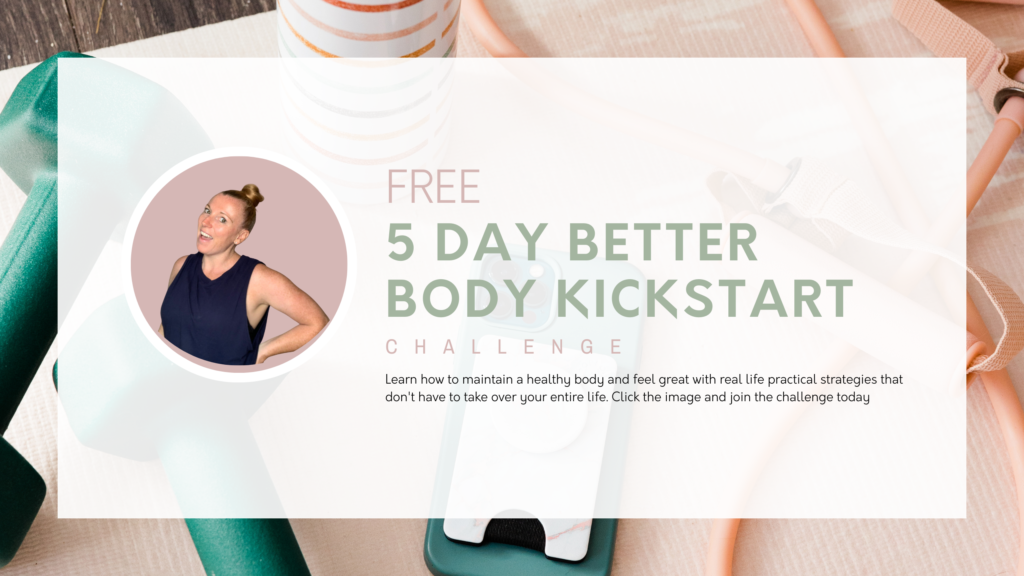

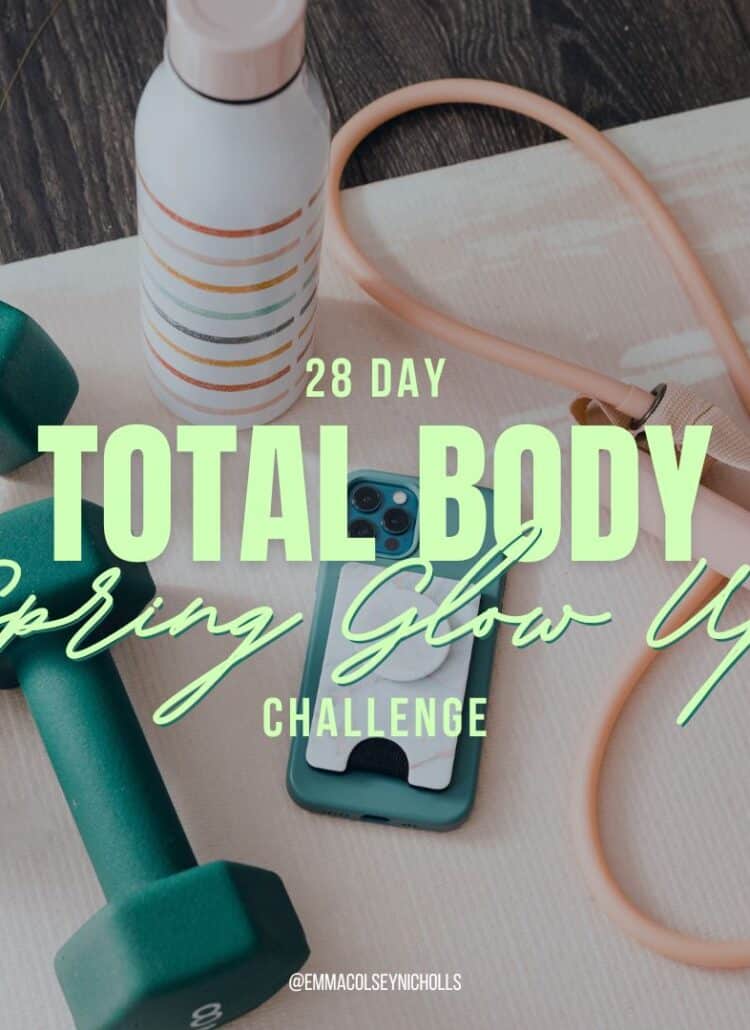
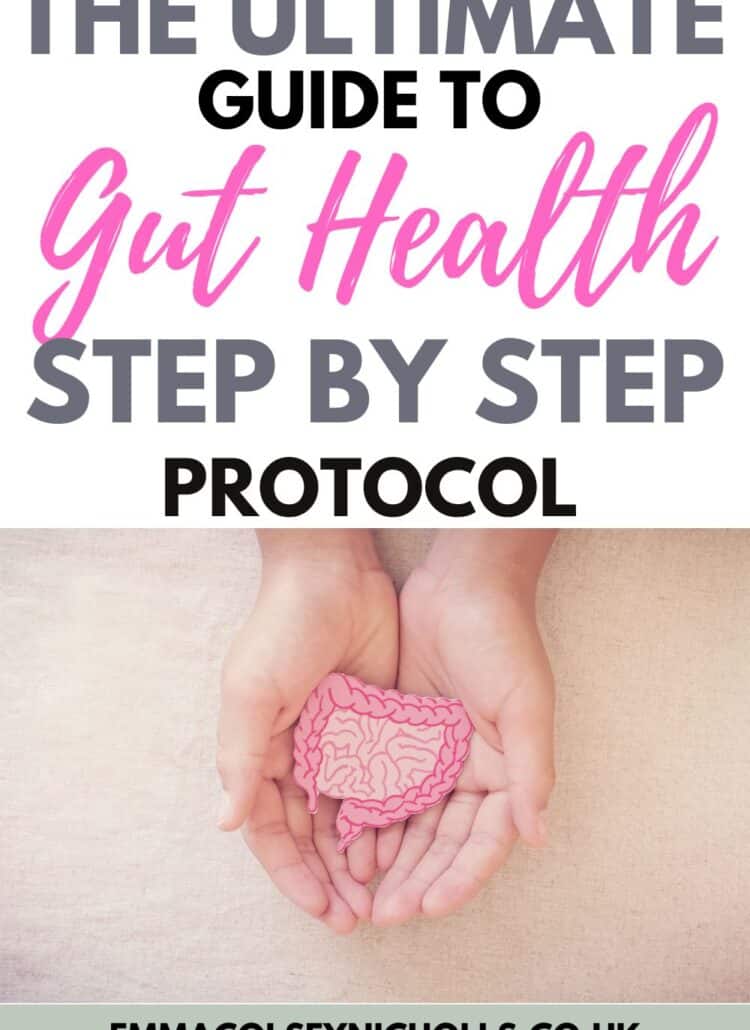
Leave a Reply